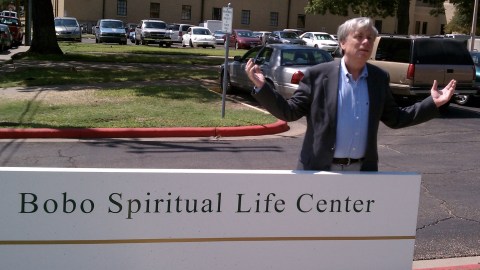MOOCS and the Economics of Higher Ed

Walter Russell Mead, one of the most expert bloggers around, gives the most realistic explanation I’ve seen on how MOOCS—those massive online courses—will affect higher education.
They won’t, in fact, replace advanced courses, those seminars and such with small enrollments.
They won’t affect much, at least at first glance, well-heeled small colleges, which brand themselves as emphasizing student engagment. Those colleges don’t have any “mass” classes at all. And their students are paying big bucks, they think, to be treated personally.
At larger colleges and universities with relatively modest tuitions (mainly public institutions), small classes are regarded as resource-sucking indulgences. So professors get to teach them only by agreeing to teach one or more huge section per semester—a class with at least 100 and sometimes hundreds of students. At schools with significant graduate programs, the professor is a kind of entertainer and MC. All the grading and other (fairly minimalist) personal stuff is handled by teaching assistants. At other schools, the professor just uses standardized, machine-graded tests, and the personal stuff is dispensed with entirely.
From what I’ve heard, administrations really value professors who don’t have any grudges when it comes to going large on class size. At a regional state school just down the road, professors can even get “double credit” for teaching a single class if they allow the class to be double or more in size than the typical already large class. It is, of course, really no more work for the professor, although the grading machine might overheat. And only foolish professors spend more hours in class than is required to keep one’s job.
Colleges and universities are already making big bucks on these mega-classes, but at the cost of personal contact. If the professor has morphed into entertainer, then why not replace him or her with a more entertaining and cost-effficient MOOC? You can keep the TAs. They don’t get paid much anyway.
It’s easy to see why a MOOC is much worse than a small class with a full-service professor. It’s not so easy to see why a MOOC is worse than a huge class taught by a minimalist professor. And “worse” can still be “good enough.”
The “issue” for professors and disciplines, of course, is that when the MOOC takes over teaching the masses, we’ll need a lot fewer professors. In the social sciences and humanities, where professors rarely get big grants to defray most of the cost of their employment, it will be nearly impossible to explain why it’s cost-effective to keep around anywhere near as many specialists who only teach their area of specialization. It’s the mass class, in most cases, that’s been bankrolling diversity in specialization. Many or most professors will be deprived of their big opportunity to do something that turns a profit for the institution. You can say that the MOOC will free up the specialists to be specialists, but explain to me why our colleges and universities will pay for that freedom.
Some experts interested in educational efficiency and productivity say that we have way too many articles on Shakespeare. Nobody but specialists read them, and nobody makes any money from them. Well, I predict the problem of oversupply of studies on Shakespeare will be solved by MOOCS. I say that, ironically, of course.
Students interested in a quick and cost-effective degrees will load up on MOOCs. And so the elite colleges that neither need nor want the service MOOCS have to offer will have to work harder to justify the personal touch, to explain why it’s more than about more than catering to the vanity of being taught by someone who really cares about ME. College students, technically, are all adults. And more of them are “untraditional” students than ever.





